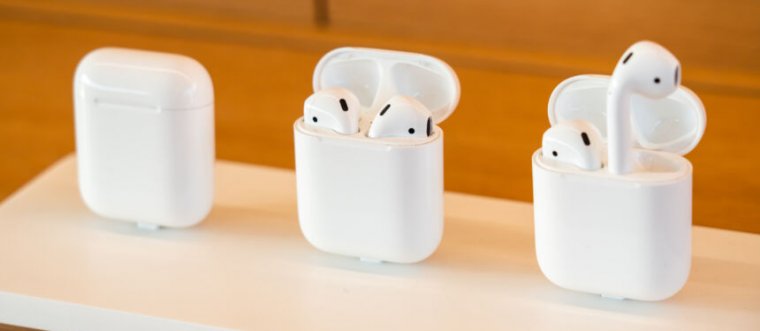appel ear pods —
Counterfeit earbud seizures at the border are up 63% so far this year.
Jim Salter
–

Enlarge / These AirPods, displayed at the Apple Park Visitor Center in Cupertino, are genuine—but spotting the difference between real and counterfeit electronics isn’t always simple.
US Customs and Border Protection reports that so far in fiscal year 2021, it has seized about 360,000 sets of wireless headphones, worth an estimated $62.2 million. That’s only nine months’ worth of seizures—but it’s already more than the 290,000 sets worth $61.7 million that were seized throughout fiscal year 2020.
In one such large seizure, CBP seized roughly 6,400 counterfeit AirPods and AirPods Pro in Cincinnati, Ohio, on July 11th. If the seized goods had been genuine, their combined Apple MSRP would have been about $1.3 million—but the five seized shipments were manifested at only $312 each. All five shipments were headed for a single address in Brownsville, Texas.
Then again, the feds may not always get it right. In September 2020, CBP in New York City seized a 2,000 unit shipment of perfectly legitimate OnePlus earbuds headed for Nevada, claiming they were “counterfeit AirPods.” When pressed about the error, CBP doubled down, saying that a company “does not have to put an ‘Apple’ wordmark or design on their products” to violate trademark law and adding that importers “have many opportunities… to provide evidence that their product does not violate the relevant recorded trademarks.”
Not all counterfeiters target Apple, of course—well-known brands such as Sony, Jabra, Samsung, and Bose have their own knockoff artists. But despite its premium brand position, Apple holds the lion’s share of the wireless earbud market. In 2020, Apple held 25% of the “smart personal audio” market share—nearly triple that of Samsung, its closest competitor. That market share added up to nearly 109 million units—and, according to market analysis firm Canalys, $16 billion or more in revenue.
Roughly 80% of the world’s counterfeit consumer goods come from China, according to the Counterfeit Report’s Craig Crosby. In late 2016, Apple bought 100 supposedly Apple-made products on Amazon and found that 90% of them were counterfeits—despite coming directly from Amazon, not from third-party listings. During the ensuing lawsuit, Amazon notified Apple that the counterfeit products were supplied by Mobile Star, despite the copious use of Apple branding.
Although some of the counterfeit goods are obvious rip-offs, some require physical disassembly and expert product knowledge to identify. Reuse of stolen factory molds is common, and some counterfeit AirPods properly mimic the pairing process with iPhones and even display proper Apple serial numbers.
Unfortunately, “similar appearance” does not imply “similar quality”—it’s much more difficult to spot subpar audio drivers and amplification circuits than a slightly off-color or misshapen chassis. Consumers should be concerned with safety, as well; Amazon product reviews of counterfeit chargers often include stories of the phony parts overheating, smoldering, or even burning outright during normal use.

